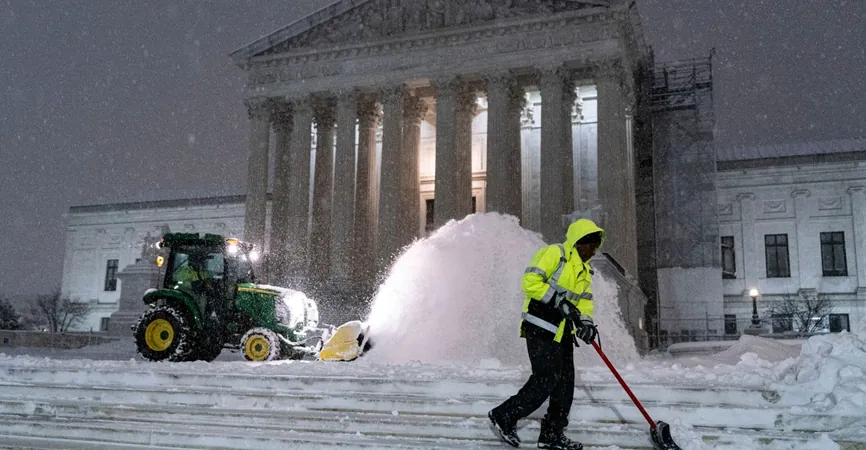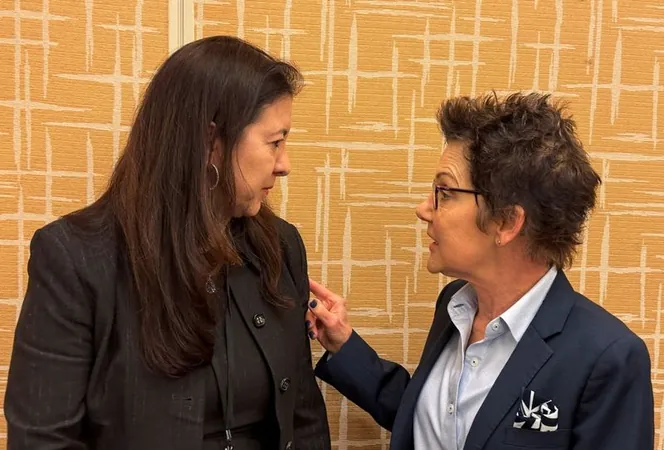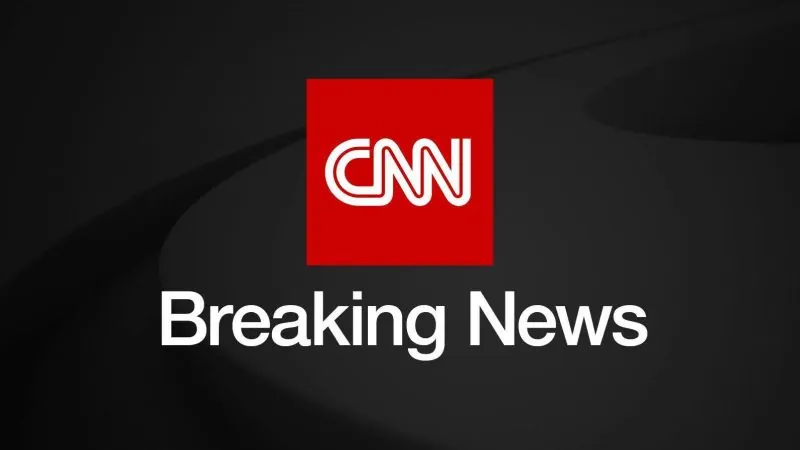
Major Supreme Court Showdown: Will Trump Gain the Upper Hand?
2025-01-06
Author: Ming
In a surprising turn of events, the U.S. Department of Justice, led by Solicitor General Elizabeth Prelogar, has made a significant request to the Supreme Court aimed at reforming the power dynamics within the federal judiciary. This bold move could have sweeping implications, particularly for Donald Trump as he prepares to assume the presidency once again.
The Legal Drama Behind Garland v. Texas Top Cop Shop
The case at the heart of this legal drama is known as **Garland v. Texas Top Cop Shop**, where a federal judge’s controversial ruling has sparked debate over the limitations of judicial power. The lawsuit revolves around the Corporate Transparency Act (CTA), a federal law passed during Trump’s first term, designed to combat financial crimes by requiring businesses to disclose their ownership information to the government. A trial judge in Texas, Amos Mazzant, struck down this law, claiming it overstepped Congress's authority to regulate interstate commerce—a decision that, if upheld, could fundamentally disrupt congressional power over business regulation.
Potential Consequences of the Supreme Court's Decision
Should the Supreme Court decide in favor of Mazzant’s ruling, it would not only endorse his dubious reasoning but could lead to a monumental shift in how federal laws are interpreted and enforced across the nation. This is a worrying prospect, particularly when considering the increasing number of partisan judges who issue broad rulings affecting the entire country, often bypassing established judicial norms.
The Scrutiny of Nationwide Injunctions
Nationwide injunctions, decisions made by singular district judges that halt federal laws, are now under scrutiny. Justice Neil Gorsuch previously raised concerns about the implications of allowing a single judge to impose a nationwide ruling, thus enabling one judiciary to override the will of the majority. The current legal landscape raises questions about whether this norm should continue, particularly with a new Republican administration on the horizon.
The Biden Administration's Request
As the Biden administration requests that the Supreme Court limits the issuance of such nationwide injunctions, the stakes are incredibly high. If the Court acknowledges the illegitimacy of these broad rulings, it could significantly empower Trump’s administration, even in cases where policies may have been deemed unlawful by lower courts.
Broader Implications for the Federal Judiciary
Beyond the immediate power dynamics, this case reveals broader legal implications about the balance of power within the federal judiciary and Congress. The Corporate Transparency Act was designed specifically to fight illicit activities like money laundering and fraud—issues that resonate heavily in today’s economic climate. In a world where financial transparency is crucial, undermining such regulations could have dire consequences.
Anticipation of the Court's Decision
Additionally, the Court’s deliberate approach to deciding on this matter raises anticipation about its priorities. With Trump now poised to return to the presidency, observers are eager to see whether the justices will prioritize curbing the power of lower courts or leave the status quo intact. The outcomes of this case could pave the way for future governance, influencing how all presidents—regardless of political affiliation—navigate their legislative agendas.
As we watch these developments unfold, one thing is clear: the impending Supreme Court decision in **Garland v. Texas Top Cop Shop** could drastically alter the landscape of American politics and judicial power for years to come. Will the Court rise to the occasion, or will it hand a gift to Trump that could set a precedent for unprecedented executive power? Stay tuned as we monitor this crucial legal battle that could reshape the future!




 Brasil (PT)
Brasil (PT)
 Canada (EN)
Canada (EN)
 Chile (ES)
Chile (ES)
 Česko (CS)
Česko (CS)
 대한민국 (KO)
대한민국 (KO)
 España (ES)
España (ES)
 France (FR)
France (FR)
 Hong Kong (EN)
Hong Kong (EN)
 Italia (IT)
Italia (IT)
 日本 (JA)
日本 (JA)
 Magyarország (HU)
Magyarország (HU)
 Norge (NO)
Norge (NO)
 Polska (PL)
Polska (PL)
 Schweiz (DE)
Schweiz (DE)
 Singapore (EN)
Singapore (EN)
 Sverige (SV)
Sverige (SV)
 Suomi (FI)
Suomi (FI)
 Türkiye (TR)
Türkiye (TR)